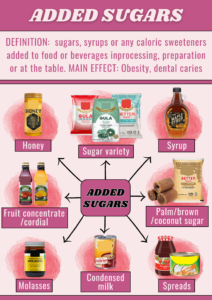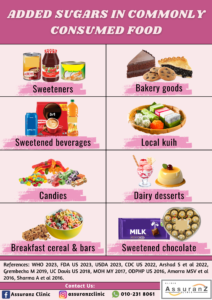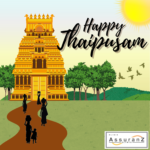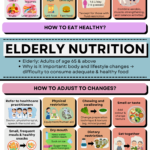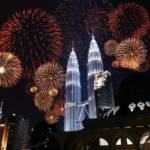Added sugars, also known as free sugars, are sugars, syrups or any caloric sweeteners added to food or beverages during processing, preparation, or at the table. Naturally occurring sugars meanwhile are sugars that are present naturally in food products such as sugars in milk, fruits, vegetables and nectar. Some naturally occurring sugars are also added sugars. Added sugar contains calories but does not provide us with essential nutrients. Added sugars are not filling and do not increase satiety despite their high calories. Thus, when too much is consumed, it can lead to health problems such as dental caries, obesity, diabetes and heart disease.
添加糖,又称为游离糖,是在加工、制备或是餐桌上添加到食品或饮料中的糖、糖浆或任何热量甜味剂。天然糖则是指天然存在于食品中的糖,如存在于牛奶、水果、蔬菜和花蜜中的糖。一些天然糖也是添加糖。添加糖含有热量,但不能为我们提供必需的营养。添加糖虽然热量很高,但并不能产生饱腹感,也不会增加饱腹感。因此,摄入过多会导致龋齿、肥胖、糖尿病和心脏病等健康问题。
The Recommended Nutrient Intake (RNI) Malaysia states that children and adults’ sugar consumption should be no more than 10% of the total daily energy intake. This means that for the general adult population with a calorie requirement of 1800 kcal per day, no more than 180 kcal (less than ~45 grams, equivalent to ~9 teaspoons) should come from free sugars. The World Health Organization (WHO) and Scientific Advisory Committee on Nutrition (SACN) suggested a further reduction of the intake to below 5% (~23 grams or 4.5 teaspoons of sugar) as there is no harm in further limitation of sugar intake.
马来西亚推荐营养素摄入量(RNI)指出,儿童和成年人的糖摄入量不应超过每日总能量的10%。这意味着对于每天热量需求为1800 kcal 的普通成年人来说,游离糖的摄入量不应超过180kcal(少于月45克,相当约9茶匙)。世界卫生组织(WHO)和营养科学咨询委员会(SACN)建议进一步将糖摄入量减少到5%以下(约23克或4.5茶匙),因为进一步限制糖摄入量并没有坏处。
Added sugars come in many forms, which include:
添加糖有多重形式,包括:
- Commonly consumed in households: Brown sugar, sugar variety (such as granulated sugar, coarse sugar, powdered sugar, raw sugar, candy), honey, palm sugar (gula Melaka), coconut sugar, maple syrup (and other pancake syrups such as brown rice syrup), fruit concentrate, condensed milk, sugarcane juice, molasses.
家庭常用的:红糖、各种糖(如砂糖、粗糖、糖粉、原糖、糖果)、蜂蜜、棕榈糖(gula Melaka)、椰子糖、枫糖(以及其他煎饼糖浆,如大米糖浆)、浓缩果汁、炼奶、甘蔗汁、糖蜜。
- Other products added in food processing: corn syrup, fruit nectar, cane juice, dextrose, fructose, glucose, maltose, sucrose, high fructose corn syrup (HFCS), malt syrup, invert sugar, evaporated corn sweetener.
食品加工中添加的其他产品:玉米糖浆、水果花蜜、甘蔗汁、葡萄糖、果糖、麦芽糖、蔗糖、高果糖玉米糖浆(HFCS)、麦芽糖浆、转化糖、蒸发玉米甜味剂。
Knowing the commonly used added sugars and reading the ingredient label on packed food can help in identifying the sugars and subsequently reducing the intake. While it might be difficult to totally eliminate each and every added sugar in food products, there are common foods containing added sugars which you can choose to avoid. These products are:
了解常用的添加糖和阅读食品包装上的成分标签有助于识别各种糖类并减少摄入量。虽然很难完全消除食品中的每一种添加糖,但我们可以选择避免食用含有添加糖的食品。这些食品包括:
- Added sweeteners such as sugar, honey, jams, syrups and condensed milk.
添加甜味剂,如糖、蜂蜜、果酱、糖浆和炼奶。
- Sweetened beverages such as regular soft drinks, energy drinks, sports drinks, fruit drinks, sweetened coffee, tea and cocoa drinks, and instant beverages (2 in 1 or 3 in 1 drinks).
加糖饮料, 如软性饮料(碳酸饮料)、能量饮料、运动饮料、果汁、加糖咖啡、茶和可可饮料、速溶饮料(2合1或3合1)。
- Breakfast cereals and bars.
早餐麦片和毂物棒。
- Bakery goods such as cakes, cookies, pastries, pies, donuts and rolls.
烘培食品,如蛋糕、饼干、糕点、馅饼、甜甜圈和面包卷。
- Local kuih such as kuih talam nyonya, seri muka and dodol.
当地糕点,如娘惹达兰糕、双色糯米糕和椰糖糯米糕。
- Dairy desserts such as ice cream and custard.
乳制品甜点,如冰激凌和奶冻。
- Candies such as lollipops and gummies.
糖果类,如棒棒糖和软糖。
- Sweetened chocolate.
加糖巧克力。
Then, what about nonnutritive sweeteners (NNS)? NNS, also commonly referred to as artificial sweeteners or alternative sweeteners might be a better choice for those wanting to reduce their calorie intake without compromising the palatability of food. While they are generally safe to use, research has been sparse regarding the purported benefit of artificial sweeteners. The WHO has stated that the use of artificial sweetener is not recommended as it does not provide any long-term benefits in weight and body fat reduction. Some research also suggested that regular long-term use may cause potential negative effects such as changes in gut microbiome, increased type 2 diabetes, cardiovascular disease, and mortality risk in adults. Some synthetically made artificial sweeteners approved as food additives include Aspartame, Acesulfame-K, Neotame, Saccharin, Sucralose, Cyclamate and Alitame. Stevia and thaumatin are NNS derived from natural sources.
那么,非营养性甜味剂(NNS)又是什么呢?非营养性甜味剂(NNS)是一类高倍甜味剂,通常不含热量或所含热量极低。对于那些想要减少热量摄入又不影响食物适口性的人来说,这种通常也被称为人造甜味剂或替代甜味剂是更好的选择。虽然它们通常可以安全使用,但关于人造甜味剂所谓的益处所做的研究却很少。世界卫生组织(WHO)表示,不建议我们使用人造甜味剂,因为它对减少体重和体脂没有任何长期益处。一些研究还表明,定期使用可能会造成潜在的负面影响,例如肠道微生物组的变化、2型糖尿病、心血管疾病和增加成人死亡风险。一些合成的人造甜味剂被批准作为食品添加剂,包括阿斯巴甜、安赛蜜、纽甜、糖精、三氯蔗糖、甜蜜素和阿力甜。而甜叶菊和索马甜则是源自于天然的非营养性甜味剂(NNS)。
Aside from artificial sweeteners, sugar alcohols are also commonly used to substitute added sugars as they contain only about half the calories provided by sugar. They are extracted from natural resources. Sugar alcohols have lower glycemic index than sugar and may exhibit prebiotic and anti-caries effects. However, it is less sweet than sugar, and overconsumption might cause laxative effects. Sugar alcohols approved internationally include sorbitol, mannitol, isomalt, maltitol, lactitol, xylitol and erythritol. Stevia is a non-nutritive non-alcohol natural sweetener.
除了人造甜味剂之外,糖醇也常用于替代添加糖,因为它们所含的热量仅为糖的一半左右。它们是从天然资源中提取的。糖醇的血糖指数比糖低,并且可能具有益生元和抗龋齿的作用。然而,它的甜度不如糖,过量食用可能会导致通便效果。国际上批准的糖醇包括山梨醇、甘露醇、异麦芽糖醇、麦芽糖醇、乳糖醇、木糖醇和赤藓糖醇。甜叶菊是一种非酒精天然的甜味剂。
